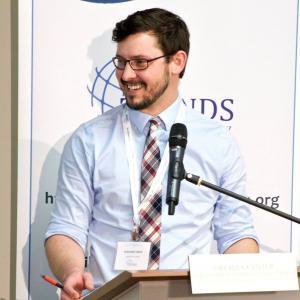Participating UCSB Faculty:
Werner Kuhn, Director of the Center for Spatial Studies
Lisa Parks, Department of Film & Media Studies
Paul Amar, Depatment of Global & International Studies
Stephan Miescher, Department of History
Corey Byrnes, Department of East Asian Languages and Cultural Studies
Javiera Barandiaran, Department of Global & International Studies
Participating graduate students:
Alston D’Silva and Lan Le, Depatment of Film & Media Studies
Marcela Suarez, Song Gao, and Grant McKenzie, Depatment of Geography
Abstract: As climate change threatens communities, how to transition to cleaner sources of energy remains a world-wide challenge. For developing countries, the stakes are high: they must simultaneously respond to climate change impacts and strive to develop using more expensive, fossil fuel-free energy sources. In this context, what are developing countries doing to switch to cleaner energies, and with what effects? How are they participating in the rise of new energy challenges, like for mobile technologies that are increasingly important to life in rural villages across Africa? Can they benefit from new energy sources, like lithium used in electric cars? Or are fossil fuels still black gold, as Brazil’s recent oil discoveries suggest? Orfalea Research Cluster funds will provide funding to create a cluster around humanities approaches to energy issues focused on the intersecting challenges of development and climate change. Participating faculty bring expertise from around the world, with on-going or planned research projects in Ghana, Brazil, Bolivia and China, and from a range of energy technologies: oil, lithium, hydroelectric, and mobile energy sources. As an Orfalea Center Cluster we hope to create cross-departmental collaborations that will inform our research and teaching efforts. The result will be improved academic capacity to discuss energy choices in environmental, social and political context, in addition to economic and engineering concerns. We will learn about and explore ways in which mapping technologies and spatial data can support humanities-based research on energy issues, and vice versa. These efforts will culminate with a conference showcasing a leading researcher in this field that will attract students and faculty from across campus. For all these reasons this cluster is a timely contribution to one of society’s greatest global challenges – climate change and the need to power growth with fossil fuel-free energy.





